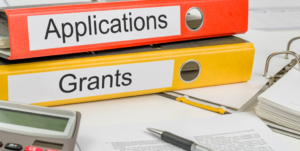

If you want to feel more economically safe and secure– and who does not?– a good first step would be developing an emergency fund if you do not currently have one. An emergency situation fund is an account which contains cash you intend to use only for financial emergency situations. These are things that can take you by surprise and cost you a great deal of money, such as: Automobile and home repairs Medical expenditures The loss of a job Most financial advisors suggest having 3 to 6 months'worth of living expenditures saved in an emergency fund
- . To apply this to yourself, tally up just how much you spend
- month-to-month on your home mortgage
or rent, other loans, insurance coverage, energies, groceries and transportation, and after that increase it by the appropriate number to see what your saving goals need to be. So, for instance, a bachelor with monthly expenditures of$1,200 ought to aim to have at least$3,600 put away, though $7,200 would be perfect.( You can use an online calculator to determine what these numbers would be for you.) Remember that you should think about saving additional money if: You're retired Your earnings isn't stable You're in a one-income household You or a member of the family has chronic poor health If you resemble many people, the concept of having an adequate emergency fund in location may seem like a far-off dream. It can in some cases be difficult to dedicate your resources to something that you think you may never ever require, especially when it seems like you'll never ever reach the quantity of cash you're “supposed” to
have reserved. However it's constantly better to have something rather than nothing
- , even if that something is just 3 digits
- . Two economists even recommend that having a minimum of$2,467 saved might be enough to keep you out of financial difficulty, which may seem like a more achievable goal. Whatever you choose your target quantity is, keep your eyes on the reward and do not get prevented, even when development seems sluggish. Quick Ways to Build an Emergency Situation Cost Savings There might not be a get-rich-quick plan for your cost savings, but there are a couple of fairly basic ways you can begin developing your emergency fund: Produce a budget and adhere to it. See where you can cut costs, and remember to pay yourself first– treat your cost savings as another bill that you have to pay rather of waiting to see what you have left after whatever else has actually been looked after. Having money straight transferred into your emergency account can assist with this.Save things like your tax refunds and work rewards. Putting” extra”money that you haven't represented into your emergency fund might be simpler for you than taking money out of your routine paycheck.Adjust your contributions when essential. After a couple of months have passed, reassess
your cost savings strategy. Has anything altered in your life
, such as transferring to a brand-new city or having a child? You may want to put more money in your emergency situation fund.Do some extra work. Not everybody has the time or energy to take up a side hustle, however
- if you can do it for even a brief time to supplement your savings, it could be worth it. How Should I Utilize My Emergency Situation Fund? Once you have an emergency fund (of any size )in place, you ought to make sure to use the money only for true emergencies. That means you do not dip into it for events you can prepare for in advance– like birthdays or annual examinations– or things like
- vacations. Finance writer Rachel Cruze recommends asking yourself these things to determine whether something is worth using your emergency situation money for: Is it unexpected?Is it necessary?Is it urgent? If you answer yes to two or 3 of these questions, then it is likely an appropriate time to withdraw money from your emergency situation fund. Then, as soon as you can, you need to begin replenishing your savings once again. Where Should I Put My Emergency Situation Fund? When we speak about keeping an emergency situation fund someplace, we do not imply in a physical area– we suggest you put your emergency money in an account that is accessible, safe and interest-earning. It should also be separate from your other accounts, so
it's easier to leave it untouched. There are a number of ways you can fulfill these criteria. Scott Smith, former president of CreditRepair.com, says, “The very best place to store emergency situation cash is normally a money market account. The majority of significant banks and regional cooperative credit union have fantastic cash market alternatives.”These accounts generally have a little better rates than standard savings accounts. However, a savings account is still an option you can consider if you ‘d choose to stick with a bank you trust and recognize with. A lot of cost savings accounts earn really little interest, but there are FDIC-insured high-yield savings accounts you can look for. At the end of the
day, creating and maintaining an emergency situation fund takes work, however it's worth it. When you have money reserved for a rainy day, you: Can better safeguard your credit Can have higher peace of mind general Can avoid going even more into debt when an emergency situation happens (or a minimum of decrease just how much you need to obtain )Can avoid yourself
from making bad monetary decisions under tension To get these benefits, make a plan and start contributing to an emergency account today. Every bit assists– and your future self will thank you. Source




